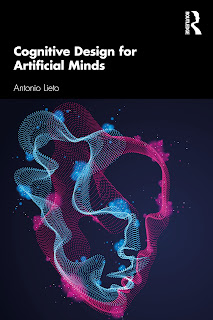Table of Contents
Introduction
Chapter 1. Cognitive Science and Artificial Intelligence: Death and Rebirth of a Collaboration
1.1. When Cognitive Science was AI
1.2. From The General Problem Solver to the Society of Mind: cognitivist insights from the early AI era
1.3. Heuristics and AI Eras
1.4. Modelling Paradigms and AI Eras: Cognitivist and Emergentist Perspective
1.5. Death and Rebirth of a Collaboration
Chapter 2. Cognitive and Machine Oriented Approaches to Intelligence in Artificial Systems
2.1. Nature vs Machine Inspired Approaches to Artificial Systems
2.2. Functionalist vs Structuralist Design Approaches
2.3. Levels of Analysis of Computational Systems
2.4. The Space of Cognitive Systems
2.5. Functional and Structural Neural Systems
2.6. Functional and Structural Symbolic Systems
Chapter 3. Principles of the Cognitive Design Approach
3.1. Classical, Bounded and Bounded-Rational Models of Cognition
3.2. Resource-Rationality Models
3.3 Kinds of Explanations
3.4 Levels of Plausibility and the Minimal Cognitive Grid (MCD)
Chapter 4. Examples of Cognitively Inspired Systems and application of the Minimal Cognitive Grid
4.1 Modern AI Systems: Cognitive Computing?
4.2 Cognitive Architectures
4.3 SOAR
4.4. ACT-R
4.5 Two Problems for the Knowledge Level in Cognitive Architectures
4.6. Knowledge Size and Knowledge Heterogeneity in SOAR and ACT-R
4.7. DUAL PECCS
Chapter 5. Evaluating the Performances of Artificial Systems
5.1. "Thinking" Machines and Turing Test(s)
5.2. The Chinese Room
5.3. The Newell Tests for a Theory of Cognition
5.4. The Winograd Schema Challenge
5.5. DARPA Challenges, Robocup and Robocup@Home
5.6. Comparison
Chapter 6. The Next Steps
6.1. The Road Travelled
6.2. The Way Forward
6.3. Towards a Standard Model of Mind/Common Model of Cognition
6.4. Community






